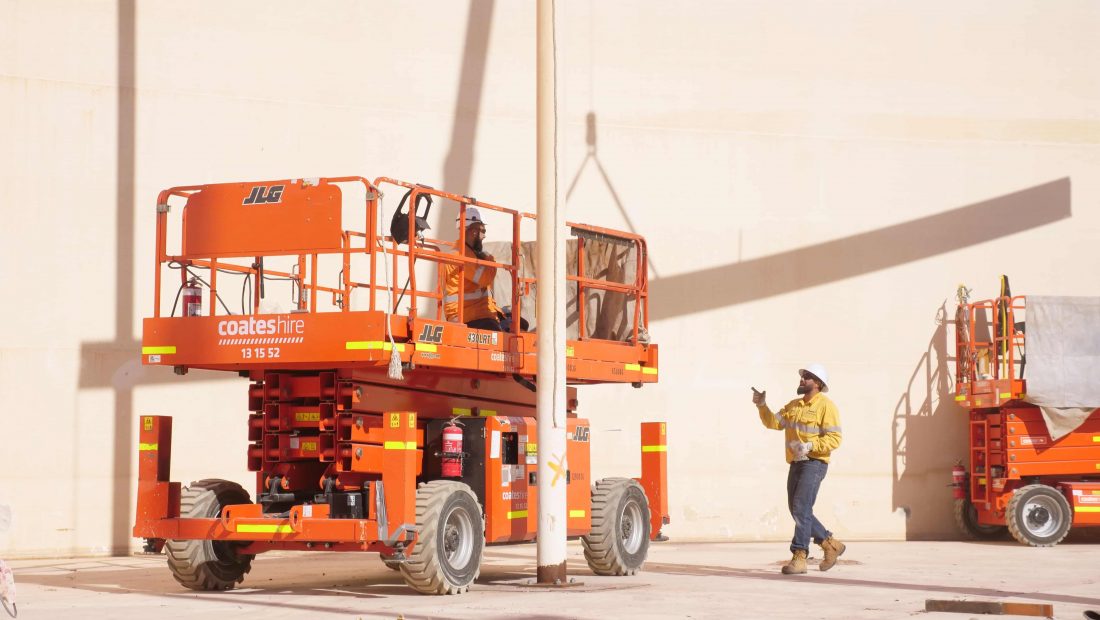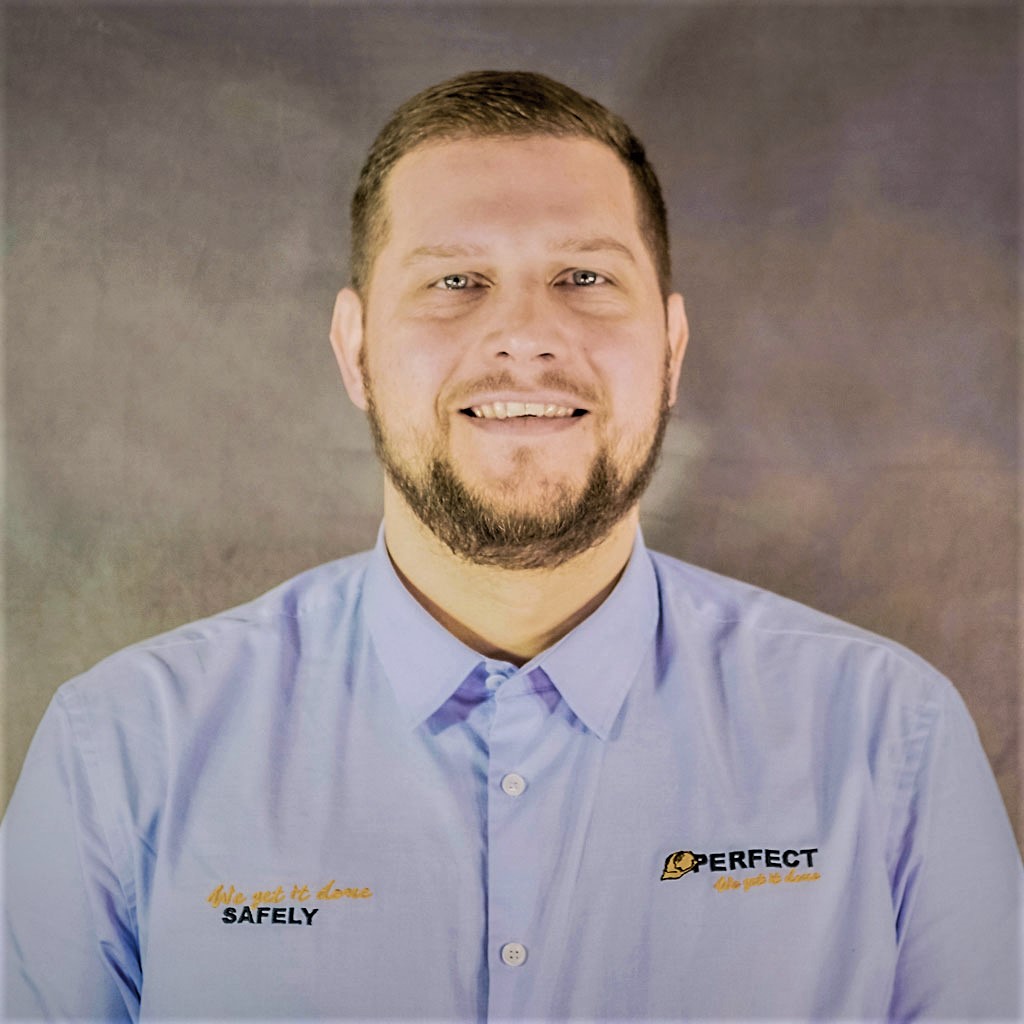What Construction Tickets Are In Demand in Australia in 2022?
- magda

By Daniel Green
Thanks to our devotion to education and certification, Australia’s construction industry remains one of the most accomplished on the planet. Since the introduction of competency based training [CBT] in the late 1980’s, construction has rocketed ahead in skill, experience, efficiency and most importantly – safety.
This just means that in Australia, any hazardous construction role or task requires training and licensing. These licenses, also known as tickets, are issued to individuals after a federal level of training and assessment has been achieved. This ensures a nationwide standardisation of skills. The idea is that after successfully completing training and assessment in a given field, a license holder should be able to do that job anywhere in the country.
A federal calibre of training remains one of the cornerstones of our industry. It manages employer expectations, costs and most critically – safety.
The White Card
The entry level ticket to work on a construction site in Australia is the General Safety Induction Card, also known as the White Card due to its colour. Issued after a one day course, the white card training package introduces future construction workers to the industry. Covering safety, specialised safety gear called PPE, site expectations and general working conditions – the white card course costs about $200, runs for six hours and has an examination at the end. It can be completed online but attending a physical training session will give more employment options.
Time: 1 day
Cost: $200
Prerequisites: None
Traffic Control
This ticket means you can work as part of a traffic management team, controlling the flow of traffic on gazetted roads and around job sites. The role involves traffic diversions around earthworks and excavation, cranes and lifting, fabrication and other construction specific tasks. It includes designing and implementing Traffic Management Plans [TMP’s] to reduce the hazards of vehicle and foot traffic around construction practices.
Time: 1 day
Cost: $210
Prerequisites: None
Hoist Operator
Large multi-storey construction sites like skyscrapers often utilise hoists. These are no-frills elevators that quickly move workers, small machinery and equipment to different levels of construction. These hoists require skilled operators to control them. A hoist operator will spend many hours in their elevator, answering radio calls requesting them at various floors to help keep the job moving forward. The HO ticket falls under the High Risk Work license umbrella, meaning that there is extra risk involved in the job. It has a special card bearing the NSW government logo that must be carried at all times.
Time: 2 days
Cost: $800
Prerequisites: White Card
Forklift Operator
Another High Risk Work [HRW] license is the forklift ticket. Coded LF, this qualification allows the operator to drive various types of forklift machine. Forklifts are used to transport goods and equipment across construction sites. Forklift licenses permit operators to drive forklifts of any capacity. Like the HO ticket, LF licenses require an HRW license.
Time: 2 days
Cost: $450
Prerequisites: None
Truck License
Some construction sites are so big they needs trucks just to get across site. Other sites need trucks to go and get supplies. Either way, a truck license is an extremely valuable qualification to hold. Licenses are categorised by Gross Vehicle Mass [GVM] in the following ways:
- Trucks from 0t to 4.5t GVM – car license only required
- Trucks and buses from 4.5t GVM to 8t GVM; buses with 11+ passengers – Light Rigid license
- Trucks and buses from 8t GVM+ with single rear axle; trailers less than 9t GVM – Medium Rigid license
- Trucks and buses from 8t GVM+ with dual or tri rear axle; trailers less than 9t GVM – Heavy Rigid license
- Articulated vehicles with dual or tri rear axle; trailers more than 9t GVM – Heavy Combination license
- Articulated vehicles with dual or tri rear axle; multiple trailers more than 9t GVM – Multi Combination license
Ascending the truck license ladder occurs in stages. For example, in addition to passing the tests, the requirement for an HC license [semi trailer] is to hold an MR or an HR license for at least one year. The requirement for holding an MR license is to hold a car license for at least one year and a HR license is to hold a car license for two years. Therefore the fastest you can obtain an HC license is two full years. This is because driving a heavy vehicle brings extra hazards that driving cars do not.
Time: License level dependant
Cost: License level dependant
Prerequisites: Car license
Expect it to take several weeks to obtain a truck license.
Elevated Work Platforms
Reaching high places on a construction site occurs in a few ways; with scaffolding, in a work box lifted by a forklift or a crane or with an EWP. Elevated Work Platforms are mobile personal lifting machines. Coming in various sizes and designs, they are classified into two categories dependent on the height of the basket.
- A machine that lifts the operator from 11m+ is called the Over 11m EWP. Because of the sheer height, this is considered high risk work and like the forklift and hoist comes with an HRW license. The course takes more than a day to complete.
- A machine that lifts the operator from 0m to 11m is called the Under 11m EWP. If taken alone this course takes a day to complete, but due to the crossover of information, when this course is packaged with the >11m course both qualifications take just two full days.
EWP’s come in various sizes and forms from scissor lifts to boom lifts to knuckle booms to cherry pickers and more.
Time: 2 days for both
Cost: $700 for both
Prerequisites: White Card
Working at Heights
As the name suggests, this ticket allows further freedom during at heights work operations through the use of fall restraints. In construction, the definition of working at height is working where falling would mean someone or something would fall from one level to another. Technically, working on a 30cm step falls into this category so we must take it with a grain of salt. However, there are real risks associated with WAH – hence the qualification.
The training will skill you up on what equipment to use, how and when to use it, rigging and anchor systems, work positioning and fall arrest systems.
Time: 1 day
Cost: $240
Prerequisites: White Card
Confined Spaces
Construction sites often have many areas deemed confined spaces that are hazardous and require special certification to work in. The full definition is:
An enclosed or partially enclosed space that:
- is not designed or intended to be occupied by a person
- is, or is designed or intended to be, at normal atmospheric pressure while any person is
- in the space; and
- is or is likely to be a risk to health and safety from:
- an atmosphere that does not have a safe oxygen level, or
- contaminants, including airborne gases, vapours and dusts, that may cause injury
- from fire or explosion, or
- harmful concentrations of any airborne contaminants, or
- engulfment.
Due the risky nature of working in these areas, certification is required with a Safe Working in Confined Spaces qualification. The course takes a day, costs about $250 and will cover identification and mitigation of hazards associated with working in a confined space.
Time: 1 day
Cost: $240
Prerequisites: White Card
Rail Industry Worker Card
Working in a live rail environment presents its own challenges and therefore requires specialised training. Understanding the rail environment, how to communicate and how to manage risk falls under the Safely Work in the Rail Corridor training package.
Time: 1 day
Cost: $500 with Cat 3 Medical
Prerequisites: White Card
Telehandler
Generally relegated to larger construction sites, the telescopic goods handler, or Telehandler, is a 4WD, four wheel steer machine with an extendable boom [telescopic] and multiple attachments. These range from buckets for moving earthen material to forks for moving pallets to a jib with its own winch to act like a crane.
Time: 1 day
Cost: $400
Prerequisites: White Card
Asbestos Removal
For more than a century asbestos made its way into construction products nation-wide. Banned in 2000, many buildings still contain it. There are also many cases of asbestos waste simply being buried. Holding an asbestos removal qualification allows you to safely remove and dispose of it.
Asbestos falls into two categories: non-friable and friable. Both have different qualifications.
Non-friable is the less hazardous product and requires a 2 day, $400 course to be certified. The prerequisite is a white card.
Friable is the more hazardous product and also requires a 2 day, $700 course to be certified. The prerequisite is a white card and the non-friable qualification.
Often you can group both courses for $1000.
Dogging
The person that safely attaches the load to a crane is a called a dogman. You cannot lift an object with a crane without one. Larger construction sites will have several cranes that all require dogmen. Or a mobile crane and dogman may travel across the city doing several lifts a day.
The dogging course is a HRW ticket that takes five days and costs about $1500. It will teach you all you need to know about the mathematics of lifting; the practical use of chains, slings, shackles & ropes; and the methods of communication with a crane operator.
Time: 1 week
Cost: $1500
Prerequisites: White Card
Rigging
This ticket allows you to install products at height that have been lifted into place by a crane. The course also costs $1500 and takes a full five days.
Time: 1 week
Cost: $1500
Prerequisites: White Card, Dogging
In Conclusion
So there you have it. For further information on where you can use these tickets, contact Tim on 0414 830 814.










